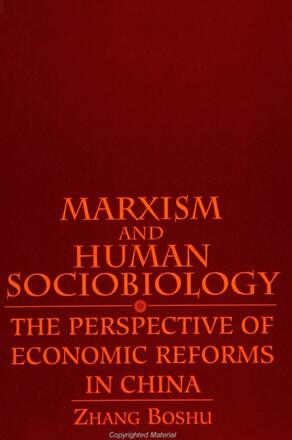
Marxism and Human Sociobiology
The Perspective of Economic Reforms in China
Alternative formats available from:
Zhang Boshu is a Chinese Researcher at the Chinese Academy of Social Sciences in Beijing, China. He is the author of Economic Behavior and Man and is currently engaged in a critical-philosophical study on the modernization of China in the twentieth century.
Reviews
"This book is completely original in its main premise and at every stage of its argument. It not only reveals the thinking of a brilliant Chinese intellectual, but also displays breakthrough ideas having important universal implications transcending China. "— Kirill Thompson
"What I liked most about the book is the personal voice the author carries in approaching the problems surrounding the present socioeconomic situation in China. China has a long political tradition in which in order to rule her people, the political authority must control them as if holding sand in the fist. Given this tradition, it must have taken Zhang Boshu enormous courage to write this book. " — Shigenori Nagatomo
"The author extends philosophical analysis into the practical area of China's current economic situation. The risk that Professor Zhang faces in so passionately voicing his own ideas and commitments gives the book an urgency not usually found in philosophical works in the West. " — Claude N. Stulting, Jr.